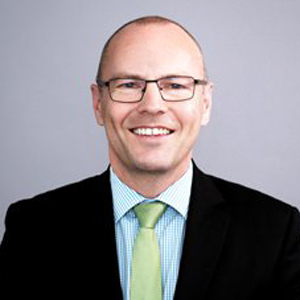How the new ‘fewer but deeper’ relationship model is evolving
As super funds have grown and, with mergers, sometimes grown very quickly, so has their rosters of outsourced funds managers. For several years most funds have been looking to have fewer but deeper relationships with their service providers, because this tends to be more efficient. At least one manager, Parametric, is looking to make this an easier thing to do.
The implementation-specialist manager has coined the service it offers an ‘Equity Agility Platform’, which is basically a more universal investment management agreement (IMA) between funds and managers. Parametric, an affiliate of parent Eaton Vance, believes it can do a lot of extra things for its clients – some of them small things, some of them big – to help with the agility needed to cope with market and regulatory changes.
Chris Briant, the head of both Eaton Vance and Parametric in Australia and New Zealand, says that the service is all about simplifying the relationships with managers. He said that, from a regulatory point of view, this had become more pressing recently with APRA’s ‘heatmap’ of a fund’s overall performance when it was realised that there were big shifts in the published results between the first and the second iteration of the regulator’s published assessment aimed at the general membership public.
“The pressure is coming from a raft of increasingly vocal super stakeholders including members, politicians and regulators, with APRA’s controversial ‘MySuper Product Heatmap’ a prime example,” he says. “APRA is using the Heatmap to highlight funds that they believe are either delivering poor net-of-tax returns or have high fees and focusing on their long-term sustainability based on cashflows. It dovetails with APRA’s plan to have fewer funds, so all funds are under enormous pressure to ‘measure up’. But ‘measuring up’ is itself a moving target – we saw this recently in the second iteration of the Heatmap, where some funds’ gradings changed dramatically from the first ‘heatmap’.
“At the same time, COVID-19 ‘Early Release’ has, somewhat ironically, proved a great engagement mechanism for fund members; and we’ve seen some politicians use the current environment opportunistically to grandstand on super. Funds were recently told by Senator Jane Hume (Assistant Minister for Superannuation, Financial Services and Financial Technology) that scrutiny and pressure to rationalise and evolve will be ongoing.”
The ‘fewer but deeper’ phenomenon stems from two main issues which big super funds have with their manager relationships. One is the manager’s capacity in a certain asset class versus the size of the super fund, and the other is that when a fund starts a relationship with a new manager, the relationship has to be worthwhile to justify the administration, researching and monitoring efforts. For a fund like AustralianSuper, as an extreme example, it is very difficult to justify investing much less than $1 billion in a traditional mandate which would not necessarily have a strategic-type benefit.
Parametric’s IMA has been set up to both cater for its original purpose to service a particular mandate, but also to be able to easily pivot from goal to goal. Briant says examples of pivots include: changing benchmarks; adding a defensive tilt; parking assets when a fund is between managers; removing an unwanted risk exposure, adding to or removing certain asset classes, such as emerging markets; addressing ESG concerns; or, chasing more esoteric solutions such as writing equity puts and calls.
“A valuable added benefit reflects Parametric’s pedigree in managing taxes, brokerage and other implementation frictions for super funds. It’s not cost-free for funds to constantly adapt portfolios to their moving targets around returns, fees and other measures,” he says. “As with the ‘Equity Agility Platform’ accounts we’re already managing, the transition management is built in, so we can manage the costs of making these changes along the way.”
– G.B.










